Ten Junior Scholars Recognized for the 11th Annual Student and Early Career Council Dissertation Research Funding Awards
SRCD congratulates the 2019 Student and Early Career Council Dissertation Funding Awardees.
Established in 2008 by the SRCD Student and Early Career Council (SECC), the Dissertation Research Funding Awards (DFAs) are given for dissertation research proposals that are exceptionally noteworthy and display the strong potential to contribute to the field of child development. Each recipient is awarded $2,000 USD to use for research costs or professional development related to the proposed dissertation project. The following award recipients will be recognized at the 2021 SRCD Biennial Meeting.
SRCD congratulates the 2019 Student and Early Career Council Dissertation Funding Awardees:
Yael Dai, Erika Hernandez, Kiera James, Ashley Pantaleao, Judith Perrigo, Kristie Poole, Yvonne Ralph, Lillian Rodriguez Steen, Jennifer Vaughn, and Kristen Yule.
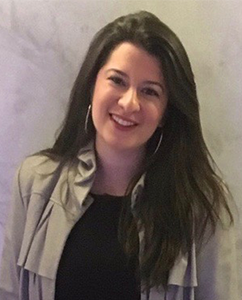 Yael Dai is a Ph.D. candidate in Clinical Psychology at the University of Connecticut (advisor: Dr. Deborah Fein). Yael’s research interests include early detection and intervention for children with Autism Spectrum Disorder (ASD), with an emphasis on involving caregivers in facilitating diagnosis and intervention, utilizing technology to disseminate intervention, and tailoring interventions for multicultural populations. Yael’s dissertation examines the efficacy and acceptability of a novel web-based training program for caregivers of children with ASD. Specifically, she seeks to determine whether the online training program, designed to teach parents strategies for promoting attachment and teaching children fundamental skills, improves caregiver application of evidence-based intervention principles and child social communication. She hopes that this and/or similar web-based interventions can be employed by parents who lack access to more intensive intervention, as supplemental training for families who are receiving services, or as a first step for parents of very young children who might have concerns about their children’s development.
Yael Dai is a Ph.D. candidate in Clinical Psychology at the University of Connecticut (advisor: Dr. Deborah Fein). Yael’s research interests include early detection and intervention for children with Autism Spectrum Disorder (ASD), with an emphasis on involving caregivers in facilitating diagnosis and intervention, utilizing technology to disseminate intervention, and tailoring interventions for multicultural populations. Yael’s dissertation examines the efficacy and acceptability of a novel web-based training program for caregivers of children with ASD. Specifically, she seeks to determine whether the online training program, designed to teach parents strategies for promoting attachment and teaching children fundamental skills, improves caregiver application of evidence-based intervention principles and child social communication. She hopes that this and/or similar web-based interventions can be employed by parents who lack access to more intensive intervention, as supplemental training for families who are receiving services, or as a first step for parents of very young children who might have concerns about their children’s development.
 Erika Hernandez is a doctoral candidate at Virginia Tech in Developmental Science, working with Dr. Julie Dunsmore. Erika’s research focuses on family conversations about emotion in relation to children’s socio-emotional development. She strives to consider the sociocultural and developmental contexts in all of her work, specifically the influence of culture, race, and ethnicity on family conversations and child outcomes. Her dissertation project, titled “Grandmothers’ and mothers’ emotion socialization through intergenerational reminiscing in underrepresented families in the U.S.”, examines intergenerational contributions to children’s socio-emotional development in African American, Latinx, and Appalachian family structures. To do this, Erika is examining triadic and dyadic family conversations about past emotional events and coding these conversations for the emotional content and linguistic communication of this content. Grandmothers and mothers are also participating in an open-ended interview in which they discuss how they view emotion in their communities. Erika hopes that her dissertation project will broaden the conceptualization of emotion socialization to include socializers and socialization contexts that are more common in underrepresented families, promoting the diversity of human experience in her area of research.
Erika Hernandez is a doctoral candidate at Virginia Tech in Developmental Science, working with Dr. Julie Dunsmore. Erika’s research focuses on family conversations about emotion in relation to children’s socio-emotional development. She strives to consider the sociocultural and developmental contexts in all of her work, specifically the influence of culture, race, and ethnicity on family conversations and child outcomes. Her dissertation project, titled “Grandmothers’ and mothers’ emotion socialization through intergenerational reminiscing in underrepresented families in the U.S.”, examines intergenerational contributions to children’s socio-emotional development in African American, Latinx, and Appalachian family structures. To do this, Erika is examining triadic and dyadic family conversations about past emotional events and coding these conversations for the emotional content and linguistic communication of this content. Grandmothers and mothers are also participating in an open-ended interview in which they discuss how they view emotion in their communities. Erika hopes that her dissertation project will broaden the conceptualization of emotion socialization to include socializers and socialization contexts that are more common in underrepresented families, promoting the diversity of human experience in her area of research.
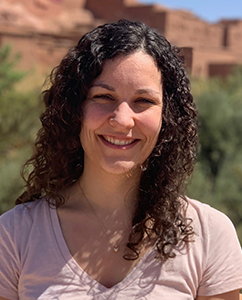 Kiera James is a doctoral candidate in Clinical Psychology at Binghamton University (SUNY) under the mentorship of Dr. Brandon Gibb. Her research focuses on identifying markers of risk for self-injurious thoughts and behaviors (STBs) in youth. Specifically, she studies the impact of interpersonal relationships on risk for STBs with a focus on integrating proposed mechanisms of risk across multiple units of analysis (e.g., peripheral physiology, neural, behavioral, self-report). Kiera’s previous research underscores the potential impact of parental criticism on children’s neural and physiological responses to interpersonal stimuli, and children’s STB histories. She has also examined the impact of children’s STB history on the dynamic synchrony of mothers’ and children’s moment-to-moment changes in facial affect during actual interactions. Her dissertation aims to examine whether adolescents with a history of nonsuicidal self-injury exhibit disrupted processing of, and responses to, interpersonal stimuli across multiple levels of analysis, and to clarify how these factors may combine to increase risk for future STBs. She hopes that this integration of physiological, cognitive, and environmental influences into a single model of risk could clarify mechanisms of risk in youth, and highlight potential targets of intervention to reduce the risk of future STBs.
Kiera James is a doctoral candidate in Clinical Psychology at Binghamton University (SUNY) under the mentorship of Dr. Brandon Gibb. Her research focuses on identifying markers of risk for self-injurious thoughts and behaviors (STBs) in youth. Specifically, she studies the impact of interpersonal relationships on risk for STBs with a focus on integrating proposed mechanisms of risk across multiple units of analysis (e.g., peripheral physiology, neural, behavioral, self-report). Kiera’s previous research underscores the potential impact of parental criticism on children’s neural and physiological responses to interpersonal stimuli, and children’s STB histories. She has also examined the impact of children’s STB history on the dynamic synchrony of mothers’ and children’s moment-to-moment changes in facial affect during actual interactions. Her dissertation aims to examine whether adolescents with a history of nonsuicidal self-injury exhibit disrupted processing of, and responses to, interpersonal stimuli across multiple levels of analysis, and to clarify how these factors may combine to increase risk for future STBs. She hopes that this integration of physiological, cognitive, and environmental influences into a single model of risk could clarify mechanisms of risk in youth, and highlight potential targets of intervention to reduce the risk of future STBs.
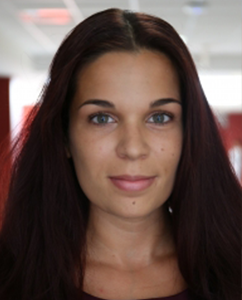 Ashley Pantaleao is a fourth-year doctoral candidate in the Family Science Program at the University of Maryland. She graduated with a M.A. in Health Psychology from Central Connecticut State University. Ashley has 6 years of experience working at a children's hospital as a research assistant. Many of Ashley’s research experiences have focused specifically on the parent-child relationship in the context of the child having a chronic illness. She primarily is working on her dissertation which focuses on the barriers that young adults with sickle cell disease face as they transition from a pediatric to an adult healthcare center.
Ashley Pantaleao is a fourth-year doctoral candidate in the Family Science Program at the University of Maryland. She graduated with a M.A. in Health Psychology from Central Connecticut State University. Ashley has 6 years of experience working at a children's hospital as a research assistant. Many of Ashley’s research experiences have focused specifically on the parent-child relationship in the context of the child having a chronic illness. She primarily is working on her dissertation which focuses on the barriers that young adults with sickle cell disease face as they transition from a pediatric to an adult healthcare center.
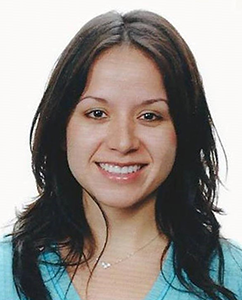 Judith Perrigo is a doctoral candidate in Social Work at the University of Southern California, and her doctoral advisor is Dr. Michael Hurlburt. Judy draws from her personal background as a Salvadoran immigrant and 16 years of applied clinical work with children and families to inform her scholarship. Her research focuses on the wellbeing of young children – birth to five years old – with emphasis on holistic and transdisciplinary prevention and early intervention initiatives. Judy works on projects that involve international and domestic child protection services, developmental delays and disabilities, IDEA Part C early intervention services, neuro-cognitive development, early childhood education (ECE), and neighborhood wellness. Her dissertation explores the role of parental involvement among low-SES students who close the low/high-SES achievement gap. The strengths-based, sequential explanatory mixed methods study enhances an existing randomized controlled trial, the Chicago Heights Early Childhood Center (CHECC). Unique access to the CHECC infrastructure and a multidisciplinary dissertation committee (e.g., economics, developmental psychology, social work, anthropology, and neuroscience), provides Judy with a unique, grounded transdisciplinary perspective. The public health implications of her study highlight possible points of intervention to improve ECE programs that benefit low-SES preschool students, resulting in more significant, sustained, and equitable academic outcomes.
Judith Perrigo is a doctoral candidate in Social Work at the University of Southern California, and her doctoral advisor is Dr. Michael Hurlburt. Judy draws from her personal background as a Salvadoran immigrant and 16 years of applied clinical work with children and families to inform her scholarship. Her research focuses on the wellbeing of young children – birth to five years old – with emphasis on holistic and transdisciplinary prevention and early intervention initiatives. Judy works on projects that involve international and domestic child protection services, developmental delays and disabilities, IDEA Part C early intervention services, neuro-cognitive development, early childhood education (ECE), and neighborhood wellness. Her dissertation explores the role of parental involvement among low-SES students who close the low/high-SES achievement gap. The strengths-based, sequential explanatory mixed methods study enhances an existing randomized controlled trial, the Chicago Heights Early Childhood Center (CHECC). Unique access to the CHECC infrastructure and a multidisciplinary dissertation committee (e.g., economics, developmental psychology, social work, anthropology, and neuroscience), provides Judy with a unique, grounded transdisciplinary perspective. The public health implications of her study highlight possible points of intervention to improve ECE programs that benefit low-SES preschool students, resulting in more significant, sustained, and equitable academic outcomes.
 Kristie Poole is currently completing the fourth year of her Ph.D. in Developmental Psychology at McMaster University under the direction of Dr. Louis Schmidt. Prior to pursuing her Ph.D., she completed a M.Sc. in Health Research Methodology, and a B.Sc. in Life Sciences. Broadly, her research investigates the interaction among temperamental, physiological, and contextual factors involved in socio-emotional development. She is particularly passionate about studying the developmental origins and biological foundations of shyness, as well as investigating factors that maintain or alter shyness across development. To date, her doctoral research has examined the developmental antecedents, biological correlates, heterogeneity, and outcomes associated with shyness. Kristie’s dissertation project is examining subtypes of shyness in children. This will allow us to more precisely identify specific groups of shy children who are at risk for poor social outcomes, as well as identify factors that may play a protective role in social adjustment for some shy children. Through her dissertation project, she aims to further develop the methodological and conceptual skills necessary for studying children’s social development.
Kristie Poole is currently completing the fourth year of her Ph.D. in Developmental Psychology at McMaster University under the direction of Dr. Louis Schmidt. Prior to pursuing her Ph.D., she completed a M.Sc. in Health Research Methodology, and a B.Sc. in Life Sciences. Broadly, her research investigates the interaction among temperamental, physiological, and contextual factors involved in socio-emotional development. She is particularly passionate about studying the developmental origins and biological foundations of shyness, as well as investigating factors that maintain or alter shyness across development. To date, her doctoral research has examined the developmental antecedents, biological correlates, heterogeneity, and outcomes associated with shyness. Kristie’s dissertation project is examining subtypes of shyness in children. This will allow us to more precisely identify specific groups of shy children who are at risk for poor social outcomes, as well as identify factors that may play a protective role in social adjustment for some shy children. Through her dissertation project, she aims to further develop the methodological and conceptual skills necessary for studying children’s social development.
 Yvonne Ralph is pursuing a Ph.D. in Psychological Sciences at the University of Texas at Dallas (UTD). Her doctoral advisor is Dr. Mandy Maguire. Yvonne completed her B.S. in Speech-Language Pathology & Audiology and M.S. in Applied Cognition and Neuroscience at UTD. She is interested in understanding how environmental differences, particularly those related to child gender or socioeconomic status (SES), impact learning. As a doctoral student, her research has had two main areas of focus. Her thesis project explored the relationship between child gender and maternal spatial language use. Through a collaboration with a local museum, she continues to collect data to address the role of SES in children’s spatial language exposure. Yvonne is also involved in another ongoing project that uses Electroencephalography (EEG) to investigate the influence of SES on school age children’s language outcomes. For her dissertation, Yvonne will use EEG and behavioral measures to explore the development of mental rotation abilities in 8-13-year-old children. Her long-term goal is to increase and promote representation and engagement of women and children from economically disadvantaged backgrounds in science, technology, engineering, and mathematics (STEM).
Yvonne Ralph is pursuing a Ph.D. in Psychological Sciences at the University of Texas at Dallas (UTD). Her doctoral advisor is Dr. Mandy Maguire. Yvonne completed her B.S. in Speech-Language Pathology & Audiology and M.S. in Applied Cognition and Neuroscience at UTD. She is interested in understanding how environmental differences, particularly those related to child gender or socioeconomic status (SES), impact learning. As a doctoral student, her research has had two main areas of focus. Her thesis project explored the relationship between child gender and maternal spatial language use. Through a collaboration with a local museum, she continues to collect data to address the role of SES in children’s spatial language exposure. Yvonne is also involved in another ongoing project that uses Electroencephalography (EEG) to investigate the influence of SES on school age children’s language outcomes. For her dissertation, Yvonne will use EEG and behavioral measures to explore the development of mental rotation abilities in 8-13-year-old children. Her long-term goal is to increase and promote representation and engagement of women and children from economically disadvantaged backgrounds in science, technology, engineering, and mathematics (STEM).
 Lillian Rodriguez Steen is a doctoral candidate at the University of Ontario Institute of Technology where she is pursuing a Ph.D. in Forensic Psychology. She holds a B.A. in Psychology with a focus in Developmental Forensic Psychology from the University of Toledo where her interest in how children share their experiences began. Working under the supervision of Dr. Lindsay Malloy at Ontario Tech, her research is focused on the intersection of developmental and forensic psychology, child witnesses, and investigative interviewing. Her dissertation focuses on the ground rule portion of best practice guidelines for interviewing child witnesses. Currently, she is investigating methods through which children’s appropriate “I don’t understand” responses can be encouraged in investigative interviews as well as adult perceptions of children’s ground rule performance during these interviews. She hopes to use her research to inform policy makers and all those who question or work with children (e.g., researchers, teachers, doctors) on best practice guidelines for interviewing children.
Lillian Rodriguez Steen is a doctoral candidate at the University of Ontario Institute of Technology where she is pursuing a Ph.D. in Forensic Psychology. She holds a B.A. in Psychology with a focus in Developmental Forensic Psychology from the University of Toledo where her interest in how children share their experiences began. Working under the supervision of Dr. Lindsay Malloy at Ontario Tech, her research is focused on the intersection of developmental and forensic psychology, child witnesses, and investigative interviewing. Her dissertation focuses on the ground rule portion of best practice guidelines for interviewing child witnesses. Currently, she is investigating methods through which children’s appropriate “I don’t understand” responses can be encouraged in investigative interviews as well as adult perceptions of children’s ground rule performance during these interviews. She hopes to use her research to inform policy makers and all those who question or work with children (e.g., researchers, teachers, doctors) on best practice guidelines for interviewing children.
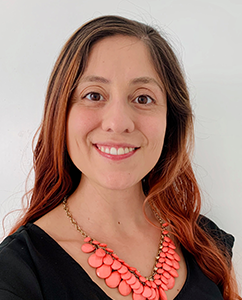 Jennifer Vaughn, M.S., is a doctoral candidate in Psychological Science at Fuller Graduate School of Psychology. Her doctoral advisor is Dr. Lisseth Rojas-Flores. Jennifer completed a Bachelor’s degree in Psychology at Occidental College and a Master’s degree in Counseling Psychology at Mount St. Mary’s University. Before pursuing her doctoral degree, Jennifer spent five years providing mental health counseling for high-risk children and adolescents as a Licensed Marriage and Family Therapist. As a doctoral student and Research Fellow, Jennifer’s research has focused on the impact of immigration enforcement on the determinants of health for children of immigrants and their families. Using the National Survey of Children’s Health, her dissertation project examines the mechanisms through which neighborhood socioeconomic status impacts the behavior and flourishing of young children of immigrants. Specifically, her proposed model identifies neighborhood structural disadvantages and parenting stress and engagement as indirect pathways to explain the effects of neighborhood SES on pre-school aged children of immigrant’s internalizing and externalizing behaviors and psychosocial flourishing. Jennifer hopes that her research will offer strategies for prevention and intervention for supporting children of immigrants in under-resourced neighborhoods.
Jennifer Vaughn, M.S., is a doctoral candidate in Psychological Science at Fuller Graduate School of Psychology. Her doctoral advisor is Dr. Lisseth Rojas-Flores. Jennifer completed a Bachelor’s degree in Psychology at Occidental College and a Master’s degree in Counseling Psychology at Mount St. Mary’s University. Before pursuing her doctoral degree, Jennifer spent five years providing mental health counseling for high-risk children and adolescents as a Licensed Marriage and Family Therapist. As a doctoral student and Research Fellow, Jennifer’s research has focused on the impact of immigration enforcement on the determinants of health for children of immigrants and their families. Using the National Survey of Children’s Health, her dissertation project examines the mechanisms through which neighborhood socioeconomic status impacts the behavior and flourishing of young children of immigrants. Specifically, her proposed model identifies neighborhood structural disadvantages and parenting stress and engagement as indirect pathways to explain the effects of neighborhood SES on pre-school aged children of immigrant’s internalizing and externalizing behaviors and psychosocial flourishing. Jennifer hopes that her research will offer strategies for prevention and intervention for supporting children of immigrants in under-resourced neighborhoods.
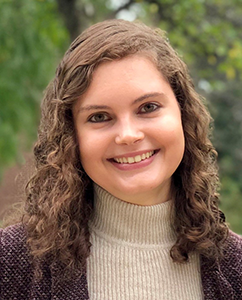 Kristen Yule, M.S., is a doctoral candidate at Marquette University pursuing a Ph.D. in Clinical Psychology under the guidance of Dr. John Grych. Kristen’s research is broadly focused on the identification of protective factors that promote adaptive functioning in youth exposed to traumatic stress and adversity. She aims to understand the processes that foster childhood resilience as a way to inform the development of clinical interventions aimed at promoting positive adaptation and preventing physical and mental health difficulties. One of Kristen’s primary interests is understanding the role of caregivers in fostering resilience in children exposed to high levels of stress and adversity. Her previous work has focused on examining the relation between specific emotion socialization behaviors and adaptive functioning in at-risk preschoolers in the context of a warm and caring parent-child relationship. Kristen plans to extend this work in her dissertation by examining whether the ability to reflect upon past experiences with childhood caregivers (i.e., reflective functioning) will predict parents’ use of emotionally responsive parenting strategies and thus protect against relationship difficulties with their own children. Findings may have important implications for the development of interventions for parents considered at high-risk for parenting difficulties.
Kristen Yule, M.S., is a doctoral candidate at Marquette University pursuing a Ph.D. in Clinical Psychology under the guidance of Dr. John Grych. Kristen’s research is broadly focused on the identification of protective factors that promote adaptive functioning in youth exposed to traumatic stress and adversity. She aims to understand the processes that foster childhood resilience as a way to inform the development of clinical interventions aimed at promoting positive adaptation and preventing physical and mental health difficulties. One of Kristen’s primary interests is understanding the role of caregivers in fostering resilience in children exposed to high levels of stress and adversity. Her previous work has focused on examining the relation between specific emotion socialization behaviors and adaptive functioning in at-risk preschoolers in the context of a warm and caring parent-child relationship. Kristen plans to extend this work in her dissertation by examining whether the ability to reflect upon past experiences with childhood caregivers (i.e., reflective functioning) will predict parents’ use of emotionally responsive parenting strategies and thus protect against relationship difficulties with their own children. Findings may have important implications for the development of interventions for parents considered at high-risk for parenting difficulties.